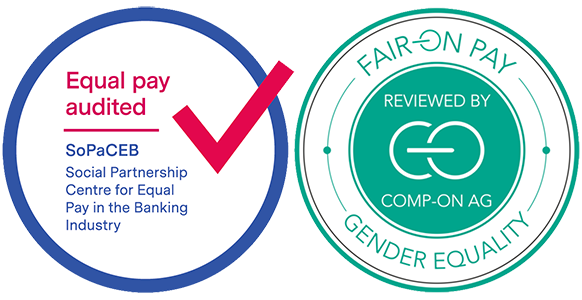OASI 21 Reform – The main changes
Effective 1 January 2024

On 25 September 2022, the people and cantons accepted the OASI 21 reform, thereby guaranteeing financing of OASI pensions and the level of pensions for the next ten years.
Among other things, this reform involves adjustments to Pillar 3a, particularly in relation to the standard retirement age for women.
The following are the most substantial changes as a result of the OASI 21 Reform:
- Uniform retirement age
- Transition process
- Flexible pension collection
- Increased pensions for those who continue to work beyond retirement age.
1. Uniform retirement age (harmonisation of the retirement age for women to 65)
The standard retirement age for women is being raised from 64 to 65.
The rise will be gradual, increasing by three months per year starting in 2025.
From 2028, the retirement age for both women and men will be 65.
The table below illustrates how many additional months women affected by the reform will have to work.
|
Birth |
Retirement age for women |
Start of entitlement to OASI pension |
|
1960 |
64 years |
February 2024 – January 2025 |
|
1961 |
64 years and 3 months |
May 2025 – April 2026 |
|
1962 |
64 years and 6 months |
August 2026 – July 2027 |
|
1963 |
64 years and 9 months |
November 2027 – October 2028 |
|
1964 |
65 years |
from February 2029 |
2. Transition process
Women born between 1961 and 1969 will be affected by this transition phase. They will therefore be financially compensated for the raising of the retirement age and be entitled to compensatory measures.
3. Flexible pension collection
The OASI 21 reform will make it possible to draw pensions with more flexibility: both men and women will be able to choose a transition to retirement between 63 and 70.
Receipt of the pension may occur in stages. It will be possible to continue working part-time and advance or defer a portion of the pension.
The advance period may also be determined in months rather than years.
This measure will allow a gradual transition from working life to retirement.
4. Increased pension for those who continue to work beyond retirement age
Currently, people who continue to work beyond OASI retirement age do not pay OASI contributions up to a gross monthly salary of CHF 1,400. Beyond this amount, contributions are to be paid; however, these additional OASI contributions do not increase the current pension amount.
For this reason, it is currently not worthwhile working beyond retirement age.
The entry into force of OASI 21 will make it possible to dispense with the threshold and therefore contributions paid beyond the age of 65 will be considered in the calculation of the pension. This incentive to continue in paid activity beyond the retirement age will make it possible to close any contribution gaps and allow the pension amount to be increased.
Further details can be found on the Federal Compensation Fund (FCF) website:
https://www.eak.admin.ch/it/riforma-avs-21


